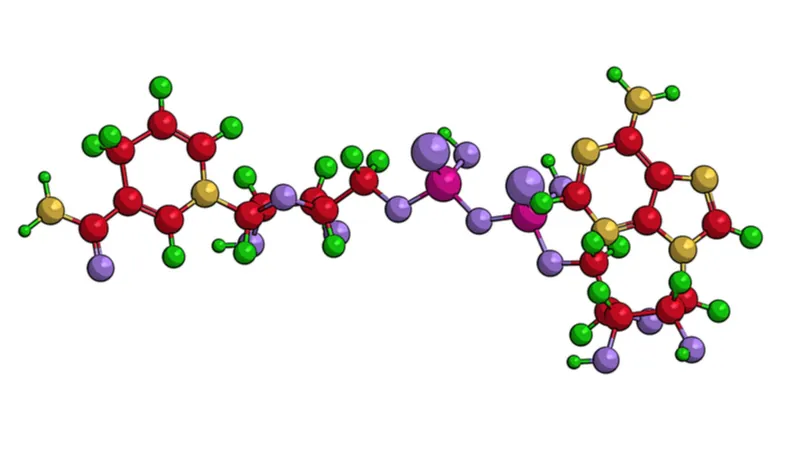NMN Reduces Systolic Blood Pressure in Clinical Trial
- The effects were limited but statistically significant.

Combining human clinical trial research, cellular analysis, and mouse studies, researchers publishing in the Nature journal Signal Transduction and Targeted Therapy have discovered a relationship between NAD+, hypertension, and the immune signal CD38.
A vital component in metabolic function

Read More
This research begins with a discussion of NAD+ and its nature as a fundamental aspect of human metabolism. In particular, the authors home in on the immune factor CD38, which has been previously found to suppress NAD+. Blocking CD38 has been found to improve the metabolism of aged mice [1]. Macrophage infiltration, in which immune cells penetrate the blood vessels and release CD38, has been found to release inflammatory cytokines, which encourage CD38 expression [2].
As previous research has found that the NAD+ precursor nicotinamide riboside (NR) may have positive effects on arterial stiffness in people [3], these researchers decided to use another precursor, nicotinamide mononucleotide (NMN), to determine if this NAD+ supplement would help in hypertension.
Positive effects in humans
First, the researchers examined 102 people, 52 of whom were healthy and 50 of whom were recently diagnosed with hypertension. While the relative levels of NAD+ precursors were similar, the hypertensive group had far less NAD+ than the healthy group. Similarly, there was an inverse correlation with blood NAD+ and blood pressure.
The researchers also looked specifically at the aortas of hypertensive patients. They found that NAD+ was depleted by nearly half in this tissue. These results were recapitulated in mice. However, these biometrics were substantially improved in mice given NMN, which enjoyed lower blood pressure and better aortic health.
This was also tested in people. A total of 19 people completed a second study, in which 9 were treated with lifestyle modifications and 10 were treated with lifestyle modifications plus NMN. As expected, NMN significantly increased NAD+ in the treated group. Diastolic blood pressure was not affected to the level of statistical significance, but systolic blood pressure was significantly reduced in the NMN group. Brachial-ankle pulse wave velocity, a marker of blood vessel damage, was also reduced in the NMN group.
The role of CD38
The researchers found that the mRNA expression of CD38 was far higher in the aortic tissue of people with hypertension. Interestingly, people with hypertension were found to have significantly more SIRT6 as well.
To confirm this connection, the researchers used silencing and promoter RNA on human aortic cells cultivated in an environment containing NMN. Compared to the control groups, the role of CD38 was confimed: cells that had their CD38 production stifled by silencing RNA had more NAD+, and cells with additional CD38 had less. Less CD38 was also found to be associated with better healing abilities. This, the researchers hold, demonstrates that CD38 is a vital part of NAD+ metabolism.
Depleting CD38 from mice showed benefits. Whether the mice had CD38 genetically knocked out from birth or they were transfected with an adeno-associated virus, the effects of hypertension were substantially reduced. Administering NMN did not have statistically significant effects on these modified mice.
Further experimentation explored the connection between macrophage infiltration and CD38. Macrophages taken from hypertensive patients were found to have more of the interleukin IL-1ß, which is associated with inflammation. The connection to CD38 was found to be due to the JAK/STAT pathway, confirming previous research [4].
Is a better treatment on the horizon?
As directly inhibiting CD38 seems to be a considerably more effective technique than NAD+ supplementation, it is logical that this should be the next approach for research. However, the techniques that are appropriate for laboratory mice can’t be used in the clinic. We look forward to research into a CD38 inhibitor that can be safely used on human beings.
Literature
[1] Tarragó, M. G., Chini, C. C., Kanamori, K. S., Warner, G. M., Caride, A., de Oliveira, G. C., … & Chini, E. N. (2018). A potent and specific CD38 inhibitor ameliorates age-related metabolic dysfunction by reversing tissue NAD+ decline. Cell metabolism, 27(5), 1081-1095.
[2] Ogiya, D., Liu, J., Ohguchi, H., Kurata, K., Samur, M. K., Tai, Y. T., … & Anderson, K. C. (2020). The JAK-STAT pathway regulates CD38 on myeloma cells in the bone marrow microenvironment: Therapeutic implications. Blood, The Journal of the American Society of Hematology, 136(20), 2334-2345.
[3] Martens, C. R., Denman, B. A., Mazzo, M. R., Armstrong, M. L., Reisdorph, N., McQueen, M. B., … & Seals, D. R. (2018). Chronic nicotinamide riboside supplementation is well-tolerated and elevates NAD+ in healthy middle-aged and older adults. Nature communications, 9(1), 1286.
[4] Ogiya, D., Liu, J., Ohguchi, H., Kurata, K., Samur, M. K., Tai, Y. T., … & Anderson, K. C. (2020). The JAK-STAT pathway regulates CD38 on myeloma cells in the bone marrow microenvironment: Therapeutic implications. Blood, The Journal of the American Society of Hematology, 136(20), 2334-2345.
- News
- CD38, Hypertension, NAD+, NMN








